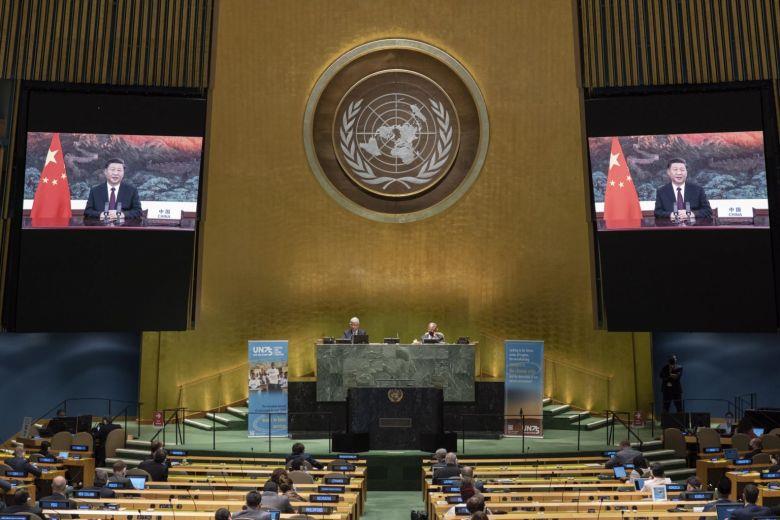UNITED NATIONS, Sept. 21 (Reuters) - World leaders came together, virtually, on Monday (Sep 21) to mark the 75th anniversary of the United Nations, as the deadly coronavirus pandemic and tensions between the United States and China challenge the effectiveness and solidarity of the 193-member world body.
As COVID-19 began to spread around the world earlier this year, forcing millions of people to shelter at home and dealing a devastating economic blow, countries turned inward and diplomats say the United Nations struggled to assert itself.
Long-simmering tensions between the United States and China hit boiling point over the pandemic, spotlighting Beijing's bid for greater multilateral influence in a challenge to Washington's traditional leadership.
The coronavirus emerged in China late last year and Washington accuses Beijing of a lack of transparency that it says worsened the outbreak. China denies the US assertions.
In an apparent swipe at the United States, China's President Xi Jinping said on Monday: "No country has the right to dominate global affairs, control the destiny of others, or keep advantages in development all to itself. Even less should one be allowed to do whatever it likes and be the hegemon, bully or boss of the world. Unilateralism is a dead end."
Xi's remarks were not in the video he recorded for the meeting. They were included in a longer statement that the Chinese UN mission said was submitted to the world body.
China has portrayed itself as the chief cheerleader for multilateralism as US President Donald Trump's disregard for international cooperation led to Washington quitting global deals on climate and Iran and leaving the UN Human Rights Council and the World Health Organization (WHO).
Deputy US Ambassador to the United Nations Cherith Norman Chalet told the General Assembly that the world body had in many ways proven to be a "successful experiment", but "there are also reasons for concern".
"The United Nations has for too long been resistant to meaningful reform, too often lacking in transparency, and too vulnerable to the agenda of autocratic regimes and dictatorships," she said.
The US withdrawal from the WHO came after Trump accused the agency of being a puppet of China, a claim the WHO denied.
